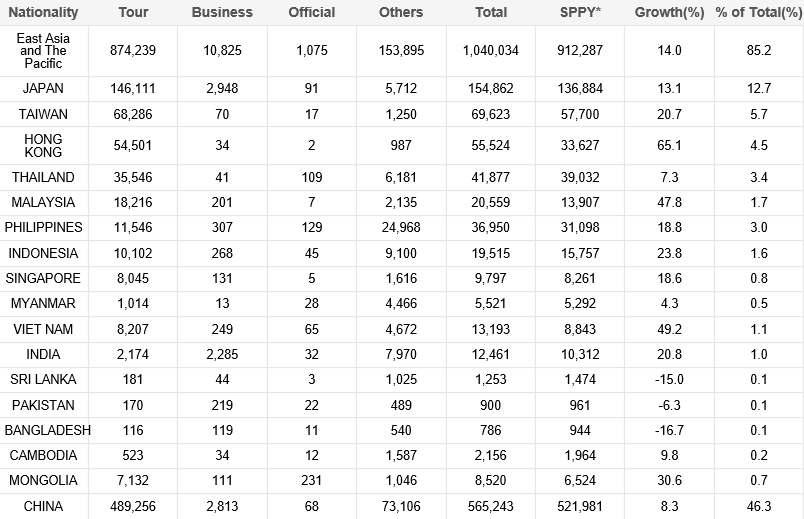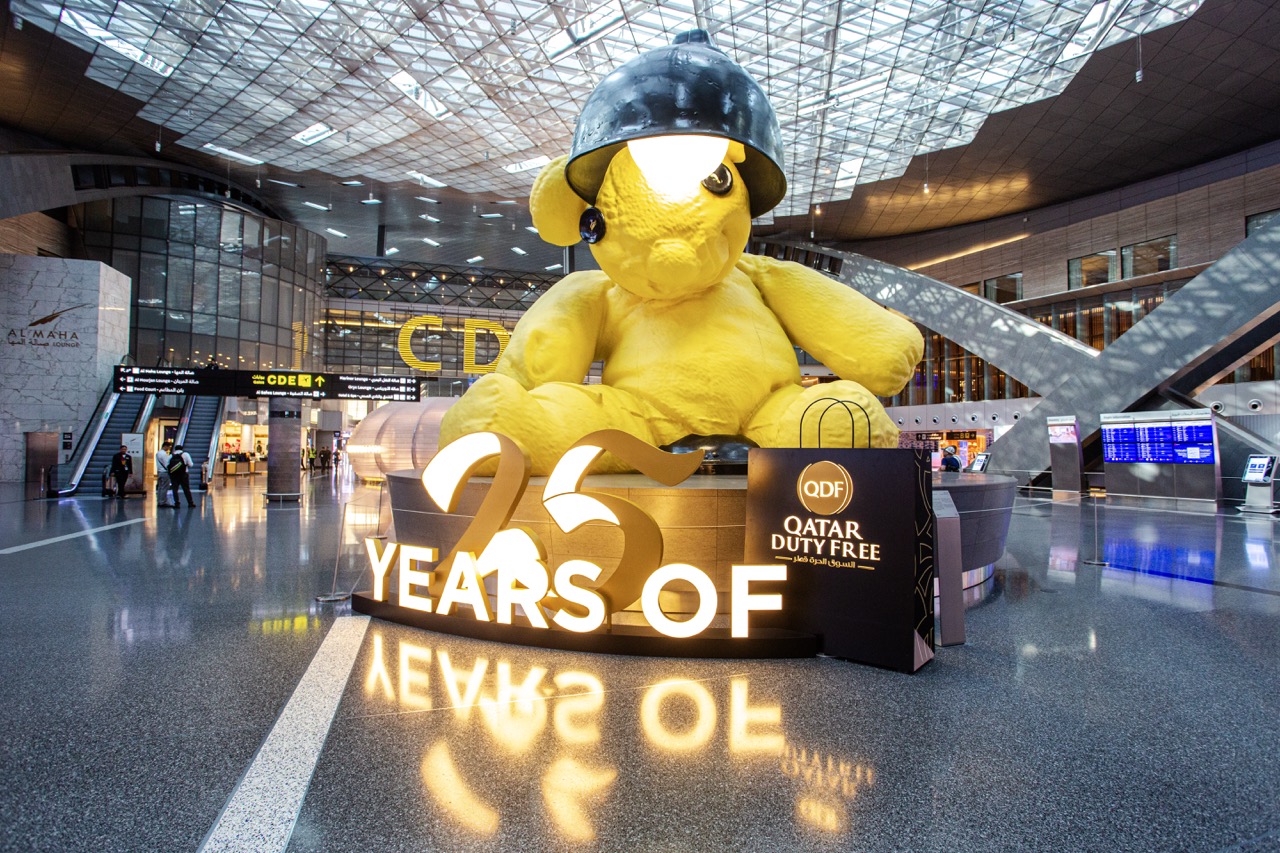SOUTH KOREA/CHINA. Fears are growing over the impact on tourism of a mounting Chinese backlash again South Korea’s imminent deployment of the US anti-missile system Terminal High Altitude Area Defense (THAAD).
The 8,067,722 Chinese visitors to South Korea last year accounted for 46.8% share of total arrivals and a much higher percentage of duty free spending. Any downturn in Chinese visitors – particularly from the group tour sector considered most vulnerable to political influence – will hit Korean travel retailers hard. The MERS crisis of 2015 underlined the devastating effect that a slump in Chinese visitors can cause.
Lotte Duty Free is the most exposed of all Korean travel retailers, partly by dint of its market dominance but more critically because it has offered (subject to board approval, which is now being evaluated carefully in light of the controversy) a Lotte Group golf course (Lotte Skyhill Country Club in the Seongju region, 217km southeast of Seoul) to the Korean government as the THAAD site. Golfers won’t be forced to cover their ears as ground-to-air missiles are fired though or take refuge in bunkers, as the facility would be handed over to the Defence Ministry in a barter for military-owned land in Namyangju, Northeastern Seoul.

As Chinese official media and social media platforms ramp up the pressure for punitive measures against South Korea in general and Lotte in particular, travel retail and tourism executives will be reviewing January’s just-released tourism figures (see tables below) with concern. While showing modest year-on-year growth for Chinese visitors of +8.3%, that compares with January 2016’s figure of +32.4% and the 2016 year-end growth rate of +34.8%.
“Lotte Group is one decision away from becoming an accessory to the act” – Xinhua News Agency
Chinese state news agency Xinhua delivered a stark warning in a weekend commentary. In a brutally uncompromising message, it thundered: “The proposed deployment of a U.S. missile defense system in the Republic of Korea is a threat to regional security and stability, and Lotte Group is one decision away from becoming an accessory to the act.
“The Lotte Group board of directors has yet to make its final decision on the land swap deal: Rightly so, they are playing with fire that could inflame regional relations. If Lotte agrees to the deal, the ROK and the U.S. governments will speed up the planned THAAD deployment. By association, Lotte will hurt the Chinese people and the consequences could be severe.

“The Chinese people will not support a company complicit in damaging China’s interests. Lotte, the ROK’s fifth-largest conglomerate, has over 150 branches in China in the retail sector alone, and its business ranges from food, retail, tourism, construction to finance and service. Chinese customers contributed 70 percent of Lotte’s overall sales at its duty free shops in the first quarter of last year, company data shows.
“Lotte stands to lose Chinese customers and the Chinese market. That would be a very large slice out of their business pie. The right decision would be for Lotte to defer or reject the deal, thus, forcing the ROK government to review the feasibility of this regionally sensitive project. One misjudged step could have severe consequences.”
Chinese state-controlled media Global Times also pulled no punches on Tuesday in an article headed ‘Lotte should move out of China over THAAD land deal’. It wrote: “Lotte’s image in China has been destroyed by its involvement in the THAAD deployment issue. Prospects for its approximately 120 stores and facilities in China are dim. Chinese tourists make up about 70 percent of Lotte Duty Free Stores’ sales, but this is expected to drop.”
“There’s a payback for every action” – China state media Global Times
The article continued in similarly strong vein: “Chinese society is also determined to make Lotte pay the price for its support of the THAAD deployment. Such a company that violates China’s interests should move out of China. South Korea has decided to stand with the US in deploying the THAAD system, which makes China a target. So, how can it be still called a friend of China? Most Chinese will consider South Korea an accomplice of the US in impairing China’s national interests.

“South Korea has neither advanced technology nor the resources that China desperately needs. The Chinese largely propped up the ‘Korean Wave’. But when mixed with the THAAD issue, it has become nothing to the Chinese. Having its bread buttered on both sides, South Korea once enjoyed a robust development. But it has since taken the side of the US against China. It is increasingly difficult for China and South Korea to conduct dialogues, and Seoul believes it’s the fault of Pyongyang and Beijing.
“South Korea is becoming tougher. Besides THAAD, it also fired shots at Chinese fishermen. But there’s a payback for every action.”
Just how severe that payback is remains to be seen. But judging by the January tourism results, it may already have begun. Duty free may not have an anti-missile system pointed at it but it’s very much in the firing line.
“The Chinese largely propped up the ‘Korean Wave’. But when mixed with the THAAD issue, it has become nothing to the Chinese.” – China state media Global Times

















